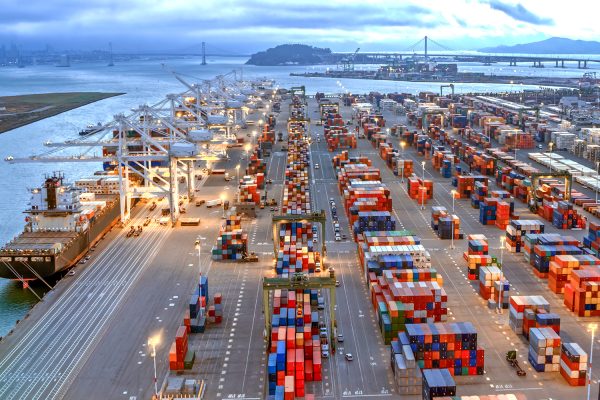
One theory of Donald Trump’s popularity has been turned on its head. Gallup’s Jonathan T. Rothwell argues in a working paper that the businessman’s voters are not in fact motivated by any disproportionate impact from immigration and trade.
Rothwell bases his analysis on interviews Gallup conducted with more than 87,000 American voters, including Trump supporters and Trump opponents. He then compared support for Trump to various other indicators, including proximity to the Mexican border (which Trump has famously promised to wall off), the share of manufacturing in local employment, educational attainment and racial segregation.
Some of his findings confirm widely-held beliefs. Trump’s voters are older than the general electorate and more likely to be retired; more male, more white, less likely to hold a college degree and more likely to work, or have worked, in a blue-collar profession.
But their average household income is actually higher than the general population’s and they are more likely to be self-employed than unemployed. Labor force participation is lower among Trump supporters, but not after adjusting for age.
This shouldn’t come as a surprise altogether. The website FiveThirtyEight previously reported that Trump’s supporters on average earn more than the average median household, belying the notion that they are working class.
It’s not about immigration and trade
Rothwell does break new ground, though, when he finds that Trump’s support isn’t strongest in those parts of the United States that have been the most exposed to immigration and international trade.
There is stronger evidence that racial isolation and less strictly economic measures of social status, namely health and intergenerational mobility, are robustly predictive of more favorable views toward Trump.
Few of Trump’s mostly white supporters live in ethnically diverse areas, which helps explain their xenophobia. We see this in Europe as well: support for anti-immigrant parties is highest in those parts of the country that have the fewest immigrants.
The Pew Research Center has similarly found a correlation between Trump support and prejudicial views about foreigners.
Daniel Byrd and Loren Collingwood have shown that Trump’s supporters are more likely to exhibit a high degree of racial resentment than other voters.
This is all a polite way of saying Trump’s support is motivated by racism.
White backlash
I wrote here last month that Trump’s candidacy was fueled by a white backlash.
Drawing on the excellent journalism of Edward Luce, David Marcus and John Marshall, I argued that Trump had tapped into a reservoir of bigotry.
Luce reported that the trigger for white rage is invariably black advancement.
Marcus argued that white Americans have been pushed to take stock of their whiteness and the result is not a catharsis of white identity but resentment toward being the only tribe not given the special treatment bestowed by victimhood.
Marshall has argued for months that racial grievance and a desire to reclaim something that has been taken away (possibly imaginary) is the centerpiece of Trump’s campaign, far more than any economic argument about the effects of globalization.
Hopeless
Trump’s voters are in poor health, which can only exacerbate their sense that things are headed the wrong direction. Rothwell found that they are more likely to be obese and die younger than others.
On top of that, they show a particularly low level of intergenerational mobility. Americans who support Trump are likely to be about as wealthy, or as poor, as their parents and their grandparents and have little prospect of improving their station in life.
That’s critical. Trump’s people don’t live in poverty. Their lives haven’t got worse. But they haven’t got much better either — for generations. They’re just below the threshold of a proper middle-class lifestyle (which is a much bigger problem in itself) and — unlike most Americans — don’t see a way for themselves or their children to get there.
Add it all up and you get a combustive mix of grievances that — we can see in retrospect — was bound to go off eventually.

Really, these are NOT immigrants they are ILLEGAL immigrants, I know and love many immigrants. Why does this not bother you, rule of law is what this is about not the proximity to the border.
Thanks for your comment, John.
I’m sure there are many Americans, as there are many Trump voters, who are concerned about illegal immigration. But it seems to me — and that is based on poll numbers and the stuff you hear and see at Trump rallies — the distinction doesn’t matter an awful lot to many, if not most, Trump voters.
Consider: the main thing that sets Trump voters apart from other Republicans is that they feel “newcomers” (no distinction between legal and illegal there) “threaten” US values.
This is not about the rule of law. It’s xenophobia.